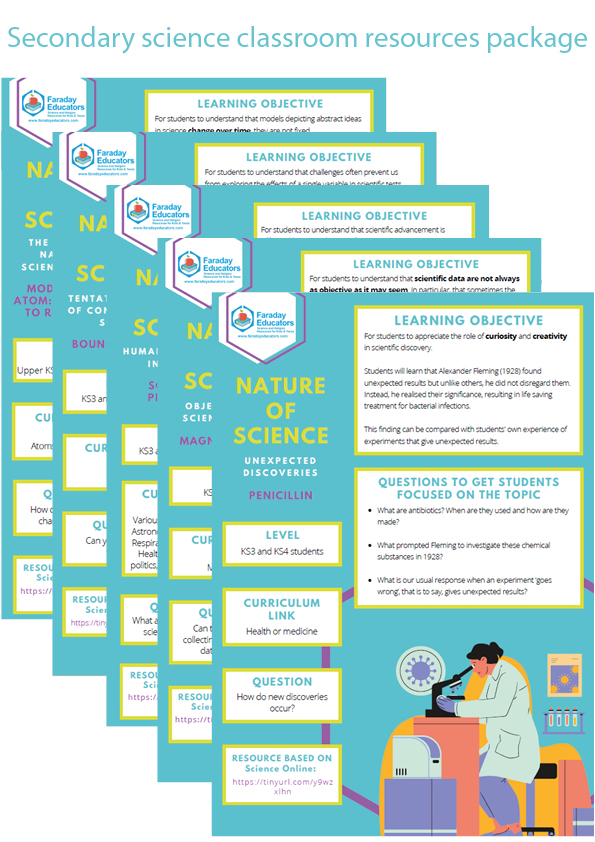How does science build knowledge? Are there limits to science? Why is science so powerful? What do scientists do? How are discoveries made and tested?
In the United Kingdom, research from the Office for Standards in Education, Children’s Services and Skills (Ofsted) showed that science lessons are good at helping students to learn “substantive/content knowledge” (knowledge produced by research, “such as models, laws and theories”). However, it also expresses concerns that “disciplinary knowledge” about science (knowledge about how the discipline forms knowledge) is not covered nearly as well. [1] Learning about the ‘nature of science’ involves exploring disciplinary knowledge – including ideas about what science is, how scientific procedures form knowledge, the power of science to explore particular kinds of questions, and the limitations of scientific enquiry.
We have built upon ‘nature of science’ resources created by New Zealand’s Ministry of Education to create lesson plans to equip students with scientific knowledge, but also with the tools to engage wisely, critically, and creatively with scientific ways of knowing. This is invaluable for students, whether they are going to become brilliant scientists and thought-leaders, or simply citizens able to thrive in a complex, science and technology-filled society.
- Models of the atom: Democritus to Rutherford – KS3&4 [The changing nature of scientific ideas] (Download here, for free)
- Bouncing Balls – KS3&4 [Tentative nature of conclusions in science] (Download here, for free)
- Theories for the formation of the moon – KS4 [Tentative nature of conclusions in science] (Download here, for free)
- Magnetic fields – KS3 [Objectivity of scientific data] (Download here, for free)
- Observing the night sky – KS3 [Excitement, curiosity, awe and wonder in science lessons] (Purchase here, for £2.50)
- Penicillin – KS3&4 [Unexpected discoveries] (Download here, for free)
- Scientific Priorities – KS3&4 [Human influences in science] (Download here, for free)
- We have also created a 2-side guide on the history of science that can help inform conversation about how the nature and methods of science have changed over time. Purchase here – for £2.50.
These resources may take a different approach to other classroom resources you will have come across, and we are encouraged by feedback from teachers. After running these sessions in school, a teacher reported that:
“90% of students agreed/ strongly agreed that “I particularly enjoyed today’s lesson (learning about the nature of science rather than just theories)” – with some saying “why aren’t all science lessons this fun?”
We feel that teachers will feel most confident, inspired and equipped to use these resources if they have joined our team for a teacher training session on integrating science and religious education. These sessions run in various formats, at various times throughout the year. So we encourage you to visit our ‘training’ page, or get in touch with our Training Lead to express your interest: kids@faraday.cam.ac.uk.
Please also feel free to get in touch if you are facing different science-religion questions and would value some support in exploring them well with young people.
*Note: Key stage references above are just for guidance, and you will know your class well enough to decide if a resource might suit them, and how you might be able to tweak it to bring it to their level.
[1] Ofsted (2021). Research review series: Science. Available at https://www.gov.uk/government/publications/subject-report-series-science













